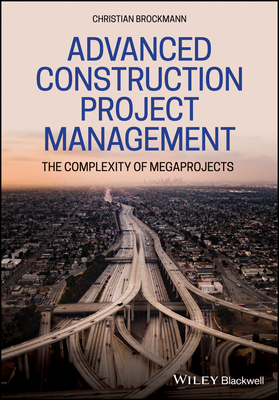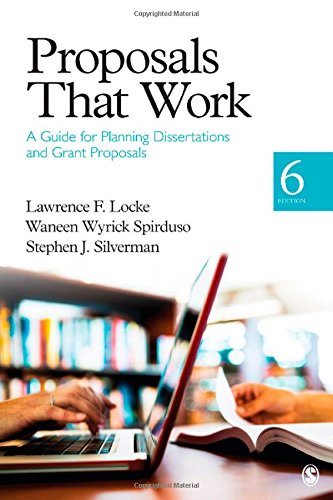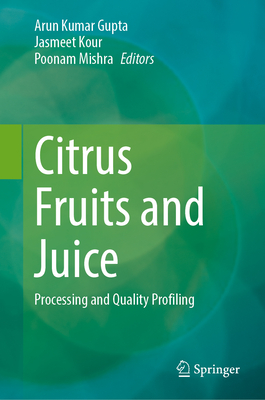图书简介
An essential guide to the structure, dynamics, and management of construction megaprojects Advanced Construction Project Management is a comprehensive resource that covers the myriad aspects of implementing a megaproject from a contractor’s perspective. With many years’ experience of managing construction megaprojects, the author provides an in-depth exploration of the structure, dynamics and management of these demanding projects. In addition, the book gives all stakeholders a clear understanding of the complexity of megaprojects and offers contractors the insight and essential tools needed for achieving results. As the trend to plan and implement ever-larger projects looks likely to continue into the future, the need for a guide to understand the challenges of managing a megaproject couldn’t be greater. Comprehensive in scope, the book explores the theoretical background, economics, complexity, phases, strategic planning, engineering, coordination, and common challenges of megaprojects. The book also provides the tools for managing stakeholder integration. This important book: Describes the structure, dynamics and management of megaprojects Explores the management activities required and examines the appropriate tools for the management of megaprojects Includes tools for stakeholder integration Provides an advanced understanding of construction management concepts Written for managers, project managers and engineers, and cost consultants, Advanced Construction Project Management covers, in one complete volume, the information needed to lead a successful project.
1. Introduction 1 1.1. Let me start with a story 3 1.2. Status of megaprojects 6 1.3. Purpose 8 1.4. Methodological approach 9 1.5. Readership 11 1.6. Structure of the text 14 2. Theoretical background 17 2.1. Definitions 17 2.2. Cognitive maps 18 2.3. Descriptive management research 19 2.4. Guiding theories 20 2.4.1. Luhmannian systems theory 20 2.4.2. Contingency theory 21 2.4.3. New institutional economics 22 3. Advanced construction project management 26 3.1. Construction 27 3.2. Management 29 4. Characteristics of megaprojects 34 4.1. Project typology 35 4.1.1. Conceptualizing criteria 36 4.1.2. Choice of dimensions 37 4.1.3. Typical cases 38 4.1.4. Typology 39 4.2. Complexity of megaprojects 43 4.2.1. Defining complexity 44 4.2.2. Construct dimensions of complexity 46 4.2.3. Factors of the construct dimensions 47 4.2.4. Complexity development 49 5. International construction management 52 5.1. International construction joint ventures 52 5.2. Global contractors 54 5.3. Goals for international construction joint ventures 56 5.4. Success factors for megaprojects 60 5.5. Key personnel 63 5.6. Expatriate life 65 6. Megaproject phases and activity groups 67 6.1. Project idea and project development 70 6.2. Design phases 71 6.3. Market contacts, bidding period and contract negotiations 72 6.3.1. Market contacts 72 6.3.2. Bidding period 74 6.3.3. Contract negotiations 75 6.4. Construction and maintenance 76 6.4.1. Planning and procurement 78 6.4.2. Testing the construction technology 82 6.4.3. Mastering the construction technology 85 6.4.4. Stabilization of all construction processes 87 6.4.5. Routine processes 89 6.4.6. Demobilization of the project 90 6.4.7. Management roles during construction 91 6.4.8. The course of complexity throughout the activity groups 93 7. Descriptive megaproject management model 97 7.1. Management functions 98 7.1.1. Complex engineering tasks 98 7.1.2. Management functions 100 7.1.3. Meta-functions 101 7.1.4. Basic functions 102 7.1.5. Cultural dimensions 103 7.2. Management functions and complexity 104 7.2.1. Management functions and task complexity 105 7.2.2. Management functions and social complexity 106 7.2.3. Cultural dimensions and cultural complexity 107 7.2.4. Management functions and cognitive complexity 109 7.2.5. Management functions and operative complexity 110 7.2.6. Combining management and complexity 110 8. Engineering management 113 8.1. Design 114 8.1.1. Design management 114 8.1.2. Design 117 8.2. Project management 119 8.2.1. Integration management 121 8.2.2. Scope management 121 8.2.3. Time management 122 8.2.4. Cost management 122 8.2.5. Quality management 124 8.2.6. Human resource management 125 8.2.7. Communication management 127 8.2.8. Risk management 128 8.2.9. Procurement management 130 8.2.10. Stakeholder management 131 8.2.11. Health, safety and environmental management 133 8.2.12. Contract management 133 8.3. Production planning 135 8.4. Site installation 141 8.5. Construction 146 9. Management functions 150 9.1. Planning 152 9.1.1. SWOT analysis 154 9.1.2. Developing new plans 155 9.1.3. Analytical framework for planning 156 9.1.4. Planning system for megaprojects 157 9.2. Controlling 162 9.3. Organizing 167 9.3.1. Organizational structure 170 9.3.2. Process organization 175 9.3.3. Organizational rules 176 9.4. Staffing 178 9.5. Directing 181 10. Meta-functions 185 10.1. Decision-making 186 10.2. Communication 192 10.2.1. Megaproject communication 192 10.2.2. Communication models 193 10.2.3. Communication methods 197 10.2.4. Communication organization 200 10.3. Coordination 204 10.3.1. Coordination methods 205 10.3.2. Fragmented supply chain 207 10.4. Learning 210 11. Basic functions 216 11.1. Project knowledge 216 11.2. Trust 219 11.3. Sensemaking 224 11.4. Commitment 227 12. Cultural management 232 13. Innovation in construction megaprojects 241 13.1. Aspects of innovation 242 13.1.1. Methodology and Case Study Choice 245 13.1.2. Innovations and trajectories 248 13.1.3. Conclusions and implications 256 13.2. The innovation process 258 13.2.1. Introduction 259 13.2.2. Approaches to generate innovation and definition 260 13.2.3. Innovation process models and barriers to innovation 261 13.2.4. Data summary 263 13.2.5. The general model of the innovation process 264 13.2.6. Product and process innovations for the BangNa Expressway 269 13.2.7. Process innovations for the Great Belt Tunnel 270 13.2.8. Conclusions 272 13.3. Progress functions 274 13.3.1. Theory and terminology 274 13.3.2. Literature review 276 13.3.3. Research 279 13.3.4. Data analysis and discussion 285 13.3.5. Discussion and conclusion 289 14. All in all, what does it mean? 292 15. References 294
Trade Policy 买家须知
- 关于产品:
- ● 正版保障:本网站隶属于中国国际图书贸易集团公司,确保所有图书都是100%正版。
- ● 环保纸张:进口图书大多使用的都是环保轻型张,颜色偏黄,重量比较轻。
- ● 毛边版:即书翻页的地方,故意做成了参差不齐的样子,一般为精装版,更具收藏价值。
关于退换货:- 由于预订产品的特殊性,采购订单正式发订后,买方不得无故取消全部或部分产品的订购。
- 由于进口图书的特殊性,发生以下情况的,请直接拒收货物,由快递返回:
- ● 外包装破损/发错货/少发货/图书外观破损/图书配件不全(例如:光盘等)
并请在工作日通过电话400-008-1110联系我们。
- 签收后,如发生以下情况,请在签收后的5个工作日内联系客服办理退换货:
- ● 缺页/错页/错印/脱线
关于发货时间:- 一般情况下:
- ●【现货】 下单后48小时内由北京(库房)发出快递。
- ●【预订】【预售】下单后国外发货,到货时间预计5-8周左右,店铺默认中通快递,如需顺丰快递邮费到付。
- ● 需要开具发票的客户,发货时间可能在上述基础上再延后1-2个工作日(紧急发票需求,请联系010-68433105/3213);
- ● 如遇其他特殊原因,对发货时间有影响的,我们会第一时间在网站公告,敬请留意。
关于到货时间:- 由于进口图书入境入库后,都是委托第三方快递发货,所以我们只能保证在规定时间内发出,但无法为您保证确切的到货时间。
- ● 主要城市一般2-4天
- ● 偏远地区一般4-7天
关于接听咨询电话的时间:- 010-68433105/3213正常接听咨询电话的时间为:周一至周五上午8:30~下午5:00,周六、日及法定节假日休息,将无法接听来电,敬请谅解。
- 其它时间您也可以通过邮件联系我们:customer@readgo.cn,工作日会优先处理。
关于快递:- ● 已付款订单:主要由中通、宅急送负责派送,订单进度查询请拨打010-68433105/3213。
本书暂无推荐
本书暂无推荐















